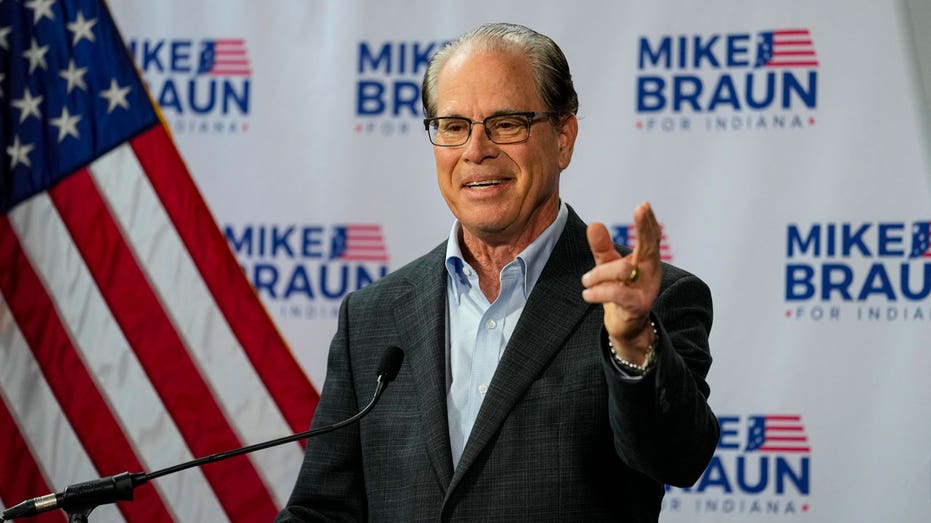Senate passes FISA surveillance tool renewal minutes after midnight deadline
The Senate passed FISA Section 702 renewal on Friday night with just minutes until the critical national security provision's deadline.

Roughly 40 minutes after it lapsed, the Senate voted to pass a renewal of Section 702 of the Foreign Intelligence Surveillance Act (FISA), which serves as a critical tool used by the government to gather intelligence on foreign subjects using the compelled assistance of electronic communication service providers.
The upper chamber voted 60-34 to pass the re-authorization. The provision lapsed for less than an hour at midnight on Friday, and if the renewal hadn't passed soon after, the expiration would have meant companies would not be forced to comply with the government's requests for surveillance aid under the bill.
Without the FISA section's re-authorization, the government would be required to seek a warrant to compel any such assistance, which is a process that can span extended periods of time.
The measure now heads to President Biden's desk for his signature.
SENATE PUSHES FORWARD FISA SURVEILLANCE BILL AS EXPIRATION LOOMS
"The stakes of such an outcome are grave," Senate Majority Leader Mitch McConnell, R-Ky., warned his colleagues in floor remarks Friday afternoon prior to any votes on amendments or the final bill.
"The authorities in question today have, quite literally, been the only defense against would-be national security disasters," he added.
On Thursday, Senate Majority Whip Dick Durbin, D-Ill., claimed the program would not "go dark," as others had suggested, if it was not renewed on time. Instead, Durbin pointed to recent certifications granted by the Foreign Intelligence Surveillance Court (FISC) that the Justice Department had informed Congress would "ordinarily remain in effect for one year, expiring in April 2025."
GOP LAWMAKERS SLAM BIDEN ADMINISTRATION'S NEW TITLE IX PROTECTIONS FOR 'GENDER IDENTITY'
However, the DOJ cautioned Congress against allowing this knowledge to slow down the Section 702 renewal process in a letter earlier this month, as companies "are likely to stop or reduce cooperation with the legal process they receive."
The DOJ further noted that this occurred during a previous surveillance measure lapse.
This warning was reiterated by McConnell on Friday, who said, "It will be up to the government to play a slow and painstaking game of whack-a-mole in court against an army of the most sophisticated lawyers in the country."
REPUBLICANS ACCUSE BIDEN, SCHUMER OF EMBOLDENING IRAN PRIOR TO ATTACK ON ISRAEL
"And in the meantime, actionable intelligence will pass us right by," he predicted.
By around 6:00 p.m. on Friday, it seemed unlikely that the Section 702 FISA re-authorization would be voted on until next week, as several senators were unwilling to yield their debate time and sought votes on their various amendments to the measure.
However, around 8:00 p.m., senators appeared to come to an agreement on amendment votes and debate time, clearing the way for an expedited voting process.
Majority Leader Chuck Schumer, D-N.Y., revealed the compromise made my senators on the floor, announcing several roll call votes would take place. "All day long, we persisted and persisted and persisted in hopes of reaching a breakthrough, and I am glad we got it done," he said, noting that there had been "great doubt" it would be accomplished.
"We finally got the Senate to agree to take votes to address serious problems with the FISA expansion and 702 reauthorization passed by the House," Sen. Mike Lee, R-Utah, wrote on X.
Bipartisan coalitions had grown on both sides of Section 702 renewal, with some arguing that the provision is a vital national security necessity, and others sounding the alarm about what they believe to be violations of constitutional protections.
Amendments from Sens. Rand Paul, R-Ky., Roger Marshall, R-Kan., Ron Wyden, D-Ore., Josh Hawley, R-Mo., Lee and Durbin were voted on ahead of the final bill's consideration. "We cannot continue sacrificing our freedoms in the name of security. Rather than reining in FISA overreach, RISAA expands it dramatically," Paul said prior to votes on his amendments, which required 60 supporters to pass. "I urge my colleagues to support meaningful reforms that protect both national security and civil liberties."
Sen. Mark Warner, D-Va., spoke against the consideration of amendments to the bill, citing the fast approaching deadline. If any amendments to the measure were passed in the Senate, the bill would be sent back to the House, where they would once again need to approve it.
All of the amendments failed to garner enough votes for passage, and thus were not added to the bill.
"Allowing FISA to expire would have been dangerous," Schumer remarked prior to the votes.



